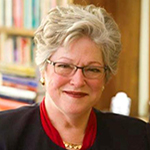 By Molly T. Marshall
By Molly T. Marshall
The Baptist World Congress is assembling in Durban, South Africa, and it holds much promise because of its setting and its theme. South Africa manifests significance for the whole world because of its pursuit of truth and reconciliation following the gross indignities and violence of apartheid. The nonviolent approach of Desmond Tutu and Nelson Mandela prevented mass bloodshed, and their leadership bore witness to a pathway for peace. The practice of forgiveness, costly to be sure, opened a new route to a more just society.
Durban is a richly multicultural city, and Gandhi spent time here honing his own nonviolent resistance amidst diverse peoples. Indeed, this city is a great crossroads of Zulus, Afrikaans, Indians, and other tribal groups. As I observe the interactions across racial lines, I am encouraged by the process this country has undergone — and continues to perfect.
Baptist Christians will have opportunities to learn from varied communities as they experience mission opportunities in and around this city. Eager to hear the stories of how people make their way here, visitors will be enriched by the faith and endurance of those who have lived through perilous times. South Africa offers its distinctive gift of Ubuntu, the reality that we can only be by being together.
The theme for our gathering is “Christ the Door,” and it seems that this hinge of our faith is swinging wide open. I just attended a press conference where BWA General Secretary Neville Callam articulated an encompassing Christology. Known for his theological depth, he spoke of the Body of Christ as more than our insular congregational expressions; rather, Christ has significance for all God has called into being, which includes other ways of faith and this fragile earthly home.
 Ever the theologian, I wanted to press him further about the implications of this vision of Christ. I believe that he is engaging the expansive Pauline vision of the Risen Christ, through whom all things cohere, as the great Christ hymn of Colossians intones (1:17). The centrality of Christ can hardly be fathomed, and through him all things hold together. Indeed, Christ is the door through which God walks, and Christ is the door through whom humanity meets God. In my judgment, Baptists have spoken too narrowly of Jesus Christ, and we have often truncated his mission to saving the souls of those who confess their faith in him. The larger social implications are subordinated to this individualistic priority.
Ever the theologian, I wanted to press him further about the implications of this vision of Christ. I believe that he is engaging the expansive Pauline vision of the Risen Christ, through whom all things cohere, as the great Christ hymn of Colossians intones (1:17). The centrality of Christ can hardly be fathomed, and through him all things hold together. Indeed, Christ is the door through which God walks, and Christ is the door through whom humanity meets God. In my judgment, Baptists have spoken too narrowly of Jesus Christ, and we have often truncated his mission to saving the souls of those who confess their faith in him. The larger social implications are subordinated to this individualistic priority.
Because the Risen Christ extends God’s redemptive mission in promissory fashion for the whole world, there is a connection with all of humanity. That God’s very Word became flesh connects divine presence with all made in God’s own image. Choosing to be made after human likeness, God in Christ holds the door open for all. Such is the humility of God, according great dignity to humans to participate in God’s very life.
The Risen Christ thus encompasses more than the resurrection of Jesus. The corporate Christ, built up through the Spirit of life, makes room for both thematized faith (as Karl Rahner put it) of those who confess Christ explicitly and the inchoate longing of those seeking redemption. God’s plan to bring all together through Christ is the fulcrum of Holy Scripture.
It is refreshing to think anew of God in Christ reconciling the world. It is enervating to fathom that God’s wide mercy desires to include all. It is humbling to consider that God will use human beings as instruments of this ravishing grace, through whom God’s ineluctable pursuit is embodied.
The breadth of Baptist life points to the larger reality of God’s mission in the world. Some 40 million strong in 177,000 churches, Baptist Christians bear a particular witness to God’s desire to bring unity through Christ into being. There are representatives from countries in conflict here; Russians and Ukrainians, for example, will worship together in this congress. Baptists who disagree over sacramental theology will receive communion together; and Baptists who divide over the role of women in ministry will hear a Bulgarian woman preach in plenary worship. Our unity is larger because Jesus Christ is the door.
In Christ the walls of partition are coming down, and an open door is set before us. As we study, worship and break bread together in these days in Durban, I trust we will better understand the height and depth and length and breadth of God’s love in Christ Jesus. Christ is our peace, and we can become one as we walk through this door together.
